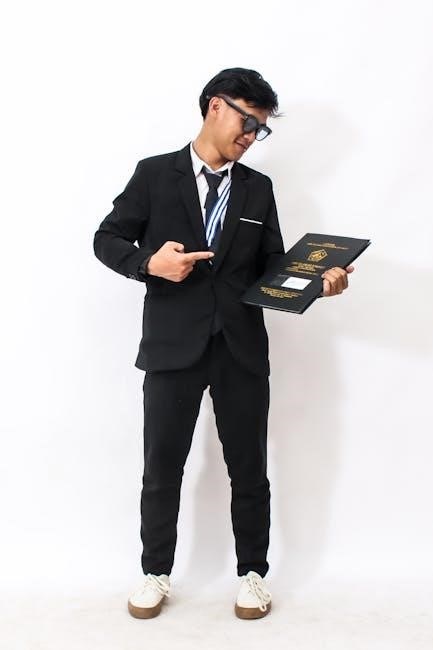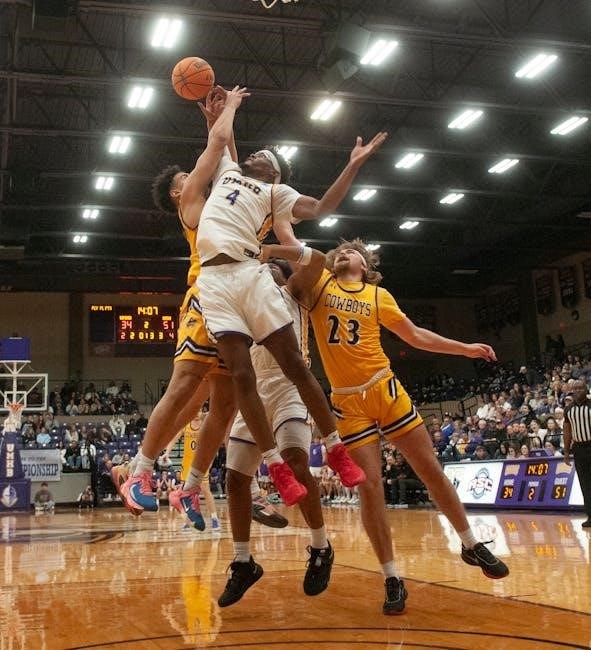Emailing college coaches is a crucial step for student-athletes seeking recruitment opportunities. A well-crafted email serves as an introduction, showcasing your athletic and academic achievements. It’s essential to be professional, concise, and clear in your communication to make a lasting impression. Proper structure, a compelling subject line, and personalized content are key elements to ensure your email stands out and initiates meaningful dialogue with coaches.
Why Emailing College Coaches is Important
Emailing college coaches is a vital step in the recruitment process for student-athletes. It provides a direct and professional way to introduce yourself, showcase your skills, and express interest in their program. Coaches often receive numerous inquiries, so a well-crafted email helps you stand out and demonstrates your initiative. By reaching out early, you can establish a connection and stay on the coach’s radar as they evaluate potential recruits. Emailing also allows you to highlight your athletic achievements, academic performance, and personal qualities, giving coaches a comprehensive view of who you are. Additionally, it opens the door for further communication, such as scheduling visits or discussing scholarship opportunities. A thoughtful email can make a strong first impression, showing coaches that you are serious about their program and committed to taking the next steps in your athletic and academic career.
Best Practices for Initial Contact
When initiating contact with college coaches, it’s crucial to approach the email thoughtfully and professionally. Start by addressing the coach by name to add a personal touch. Keep your email concise and focused, ensuring it’s easy to read and understand. Clearly state your purpose early in the message, whether it’s to express interest in their program or to share your athletic achievements. Include essential details such as your name, graduation year, high school, sport, and position to provide context. Attach or link your recruiting profile, highlight reels, and any relevant academic information to give coaches a complete view of your qualifications. Avoid overly casual language and ensure your email is free of errors by proofreading it carefully. Finally, end with a polite thank you and a call to action, such as inviting them to reach out for more information or to discuss further opportunities. A well-executed initial email sets the tone for a positive and professional relationship with the coach.

Crafting a Strong Subject Line
A strong subject line grabs attention and clearly states the email’s purpose. Use your name, sport, and intent (e.g., “Interest in Soccer Program at [College Name]”). Keep it concise, professional, and specific to stand out.

Examples of Effective Subject Lines
Crafting a strong subject line is vital to grab the coach’s attention. Effective examples include:
- Interest in Joining [College Name]’s [Sport] Program
- Excited to Explore Opportunities at [College Name]
- [Your Name] – [Your Sport] Prospect from [Your High School]
- Eager to Discuss [Sport] Recruitment at [College Name]
These subject lines are concise, clear, and professional, ensuring your email stands out in a coach’s inbox. They immediately convey your purpose and create curiosity, encouraging the coach to open your email. Personalization and relevance are key to making your subject line memorable and impactful.
Key Tips for Writing a Compelling Subject Line
A strong subject line is essential to capture a college coach’s attention. Keep it concise, clear, and specific to ensure it stands out. Use your name, sport, and college name to add context. Avoid generic phrases like “Hello” or “Hi” and instead focus on your purpose. Personalize the subject line to show genuine interest in the program. For example, “Interest in Joining [College Name]’s Soccer Program – [Your Name]” is effective. Use action verbs like “Excited,” “Eager,” or “Looking Forward” to convey enthusiasm. Ensure the subject line reflects professionalism and aligns with the tone of your email. Avoid using special characters or overly casual language, as it may appear unprofessional. Finally, proofread your subject line to avoid errors and ensure clarity. A well-crafted subject line increases the likelihood of your email being opened and read, making it a crucial first step in effective communication with college coaches.

The introduction email is your first opportunity to connect with a college coach. It should clearly state your purpose, highlight your athletic achievements, and express interest in their program. Keep it concise, professional, and personalized to make a strong first impression.
Structure of a Successful Introductory Email
A successful introductory email to a college coach should follow a clear and organized structure to ensure professionalism and clarity. Begin with a polite greeting, addressing the coach by name. Clearly state your purpose in the opening paragraph, introducing yourself, your sport, and your interest in the college program. The body should highlight your athletic achievements, such as awards, statistics, or significant contributions to your team, while also mentioning your academic performance and personal qualities. Include relevant details like your graduation year, high school, and contact information. Attach or link your recruiting profile, if available, for the coach to review. Conclude with a thank-you note and express your eagerness to discuss further. Keep the tone professional, concise, and free of errors to make a strong first impression. Proper formatting and clarity are essential to ensure your email is well-received and stands out to the coach.
Sample Email Templates for Student-Athletes

Dear Coach [Last Name],
My name is [Your Name], and I am a [Your Graduation Year] student-athlete at [Your High School] in [Your City, State]. I am reaching out to express my interest in [College Name] and the opportunity to contribute to your [sport] program.
Next, highlight your athletic achievements, such as awards, stats, or team leadership roles, and mention your academic performance. Conclude by expressing enthusiasm for the program and requesting further communication. End with a professional sign-off:
Sincerely,
[Your Full Name]
[Your Contact Information]
[Link to Recruiting Profile, if applicable]
These templates provide a professional framework while allowing personalization to reflect your unique qualities and goals.
How to Highlight Your Athletic Achievements
When emailing college coaches, it’s essential to effectively highlight your athletic achievements to demonstrate your potential as a student-athlete. Start by mentioning any awards, championships, or notable recognitions you’ve received. For example, specify if you were named MVP, earned All-State honors, or led your team in stats like goals, assists, or rebounds. Be specific about your contributions to your team’s success, such as captaining the squad or setting school records.
Include key statistics, such as your 40-yard dash time, batting average, or PR in track events, to provide concrete evidence of your abilities. If you’ve competed at high-level tournaments or showcases, highlight those experiences. Mention any club or travel teams you’ve played for, as this shows your commitment to the sport. Additionally, note any leadership roles, such as team captain, to showcase your character and ability to inspire others.
By quantifying your achievements and sharing specific examples, you’ll make a strong impression on college coaches and position yourself as a valuable recruit.
Including Academic and Personal Information
When emailing college coaches, it’s important to balance athletic highlights with academic and personal details to present a well-rounded profile. Start by mentioning your high school GPA, especially if it’s above a 3.0, as this demonstrates academic commitment. If you’ve taken advanced courses or earned academic honors, include those as well. College coaches often value students who excel both on and off the field.
Additionally, share any relevant personal information that highlights your character, such as leadership roles in clubs, volunteer work, or other extracurricular activities. For example, if you’ve organized community service events or held a leadership position in a student organization, these details can set you apart. Mentioning your long-term goals, both athletic and academic, shows maturity and ambition.
By providing a blend of academic achievements and personal qualities, you’ll create a comprehensive picture that appeals to coaches looking for well-rounded student-athletes who can contribute to their team and the college community.
How to Address the Coach Properly
When emailing college coaches, it’s essential to address them respectfully and professionally. Start your email with a formal greeting such as “Dear Coach [Last Name]” or “Dear [Full Name]”. If you’re unsure of the coach’s last name or title, research their contact information on the college’s athletic website or call the athletic department for clarification. Avoid using generic salutations like “To Whom It May Concern” or “Hello Coach”, as they lack personalization.
Personalizing the greeting demonstrates respect and effort. If the coach has a specific title, such as “Head Coach” or “Recruiting Coordinator”, include it in the address. For example, “Dear Head Coach [Last Name]” or “Dear Recruiting Coordinator [Last Name]”. This attention to detail shows you’ve done your homework and are genuinely interested in connecting with them. Always double-check the spelling of their name to avoid mistakes.
By addressing the coach properly, you set a professional tone for the rest of your email and make a positive first impression. This courtesy is crucial in building a strong initial connection with college coaches.
Following the initial contact, maintain consistent communication to keep coaches informed about your progress. Send updates on new achievements, tournament performances, and any changes in your athletic or academic status to sustain their interest and engagement.

When to Follow Up with a College Coach
Following up with a college coach is essential to keep the lines of communication open and demonstrate your continued interest in their program. Timing is crucial; typically, you should wait about one to two weeks after your initial email to send a follow-up. This allows the coach sufficient time to review your information without feeling pressured. If you’ve recently participated in a tournament or showcase, a follow-up within a few days can be appropriate, as it’s fresh in their mind. Your follow-up email should be concise, politely reiterating your interest and perhaps providing any new information, such as updated stats or achievements. Avoid being overly persistent, as this can be off-putting. One or two well-timed follow-ups are generally sufficient unless the coach has requested more frequent communication. Always maintain professionalism and clarity in your message to leave a positive impression.
What to Include in Follow-Up Emails
When crafting follow-up emails to college coaches, it’s important to strike the right balance between professionalism and conciseness. Begin by expressing gratitude for their time and consideration, whether it’s a response to an initial email or a meeting. Clearly state the purpose of your follow-up, such as reiterating your interest in their program or providing updated information about your athletic or academic progress. Highlight any new achievements, such as improved stats, recent awards, or additional tournament participation, to demonstrate your growth and dedication. Include specific questions or topics you’d like to discuss further, showing genuine interest in their team and program. If applicable, attach updated materials like highlight reels or academic records. Always close with a polite thank you and reiterate your enthusiasm for the opportunity. Keep the tone positive and professional, ensuring your email is tailored to the coach and their program.
Emailing Coaches After a Tournament or Showcase
Emailing coaches after a tournament or showcase is a great way to keep them informed about your progress and maintain their interest. Start by thanking them for their time and consideration. Provide a brief summary of your performance, highlighting any significant achievements or standout moments. Mention the tournament name, your role, and any notable stats or accolades. Express your continued interest in their program and inquire about potential next steps. Keep the tone professional and concise, ensuring the email is well-structured and free of errors. Personalize the message by referencing specific aspects of their team or program that align with your goals. Finally, close with a polite thank you and a call to action, such as requesting a meeting or call to discuss further opportunities. Following up demonstrates persistence and genuine interest, which are key qualities for college coaches.

Sample Email Templates
Sample email templates provide a structured format to ensure professionalism and clarity when contacting college coaches. They include placeholders for personal details, achievements, and interests, helping you present yourself effectively and make a strong impression.
Template for Initial Contact
Subject: Interest in [Sport] Program at [College/University Name]
Dear Coach [Last Name],
I hope this email finds you well. My name is [Your Name], and I am a [Your Graduation Year] at [Your High School] in [City, State]. I am reaching out to express my interest in the [Sport] program at [College/University Name] and to learn more about potential opportunities to contribute to your team.
I have been playing [Sport] for [Number] years and currently compete as a [Position] for [Team Name]. Some of my key achievements include [Briefly mention 1-2 notable accomplishments, e.g., “All-State Honors” or “League MVP”].
Academically, I maintain a [GPA] and am committed to balancing athletics and academics at the collegiate level. I am particularly drawn to [College/University Name] because of its [Reason for Interest, e.g., “strong athletic program” or “academic excellence in my intended major”].
I would appreciate the opportunity to discuss how I can contribute to your team. Please feel free to contact me at [Your Email Address] or [Your Phone Number]. I look forward to hearing from you and learning more about your program.
Thank you for your time and consideration.
Sincerely,
[Your Full Name]
Template for Post-Event Communication
Subject: Thank You for Attending [Tournament/Showcase Name]
Dear Coach [Last Name],
I hope this email finds you well. I wanted to personally thank you for attending the [Tournament/Showcase Name] where I had the opportunity to compete. It was exciting to play in front of you and showcase my skills;
During the event, I [Briefly mention a highlight or achievement, e.g., “scored [number] goals” or “recorded [number] saves”]. I believe this performance demonstrates my ability to contribute to your team at [College/University Name].
I would be grateful for any feedback you may have and would welcome the chance to discuss how I can fit into your program. Please let me know if you would like to schedule a call or receive additional information about my athletic and academic background.
Thank you again for your time and consideration. I look forward to the possibility of working together in the future.
Sincerely,
[Your Full Name]

Additional Tips for Effective Communication
Personalize each email, proofread for clarity, and maintain professionalism. Keep messages concise, ensuring they are well-formatted and free of errors. Always include your contact information and a polite closing to leave a positive impression.
Personalizing Your Email for Each Coach
Personalizing your email for each coach is essential to grab their attention and show genuine interest in their program. Start by addressing the coach by their first or last name, as this creates a connection. Mention specific details about the college, such as its academic strengths or athletic achievements, to demonstrate your research. Tailor your email to highlight how your skills and goals align with the team’s needs. For example, reference recent victories or notable players to show familiarity. Include your athletic stats, academic performance, and personal motivations to paint a clear picture of who you are. Personalization also involves adjusting the tone to match the coach’s communication style, whether formal or conversational. Avoid generic phrases and ensure every sentence reflects your unique fit for their program. Proofread to eliminate errors and ensure clarity. By making the email personal, you show respect for the coach’s time and increase the likelihood of a positive response. Examples of personalized touches include mentioning a specific tournament or referencing the team’s philosophy. This approach ensures your email stands out in a crowded inbox.

Proofreading and Professionalism in Emails
Proofreading and maintaining professionalism in emails are critical when communicating with college coaches. A single typo or grammatical error can undermine your credibility and professionalism. Before hitting send, review your email multiple times for clarity, grammar, and spelling. Ensure the tone is respectful and formal, avoiding slang or overly casual language. Use proper salutations like “Dear Coach [Last Name]” and close with “Sincerely” or “Best Regards.” Keep paragraphs concise and avoid lengthy sentences to maintain readability. Professionalism also extends to your email address—use a simple, appropriate one like “yourname@example.com.” Include your full name, graduation year, sport, and contact information at the end of the email. Attach any necessary documents, such as resumes or highlight reels, only if requested. By presenting a polished and professional email, you demonstrate maturity and seriousness about the opportunity to join their program. This attention to detail can significantly impact the coach’s first impression of you. Always prioritize quality and precision in your communication.

Effective communication with college coaches is key to successful recruitment. After sending your initial email, follow up politely and stay organized to track progress. Maintain professionalism and persistence to manage interactions smoothly.
Summarizing Key Points for Success
When emailing college coaches, clarity, professionalism, and personalization are essential. Start with a strong subject line that grabs attention and clearly states your purpose. In the email body, introduce yourself, highlight your athletic achievements, and express genuine interest in the program. Include relevant academic and personal information to showcase your well-rounded character. Always address the coach properly and maintain a respectful tone throughout. Proofread your email for grammar and spelling to ensure professionalism. Follow up appropriately if you haven’t received a response, but avoid being overly persistent. Personalize each email for the specific coach and program to demonstrate your genuine interest. Finally, include your contact information and any relevant links, such as your recruiting profile. By following these key points, you can create effective communication that helps you stand out and build a connection with college coaches.
How to Track and Manage Your Emails
Effectively tracking and managing your emails to college coaches is crucial for maintaining organization and ensuring timely follow-ups. Use email management tools or spreadsheets to record each coach’s contact information, the date of your initial email, and any subsequent communication. Set reminders for follow-ups, typically after 7-10 days if no response is received. Keep a log of all sent emails and responses to monitor progress and identify patterns. Utilize email templates to streamline your communication process while ensuring personalization for each coach. Regularly review your tracking system to stay updated on the status of each outreach effort. By systematically managing your emails, you can efficiently keep track of your interactions and maintain consistent communication with college coaches. This structured approach helps in building relationships and increasing your chances of successful recruitment.
